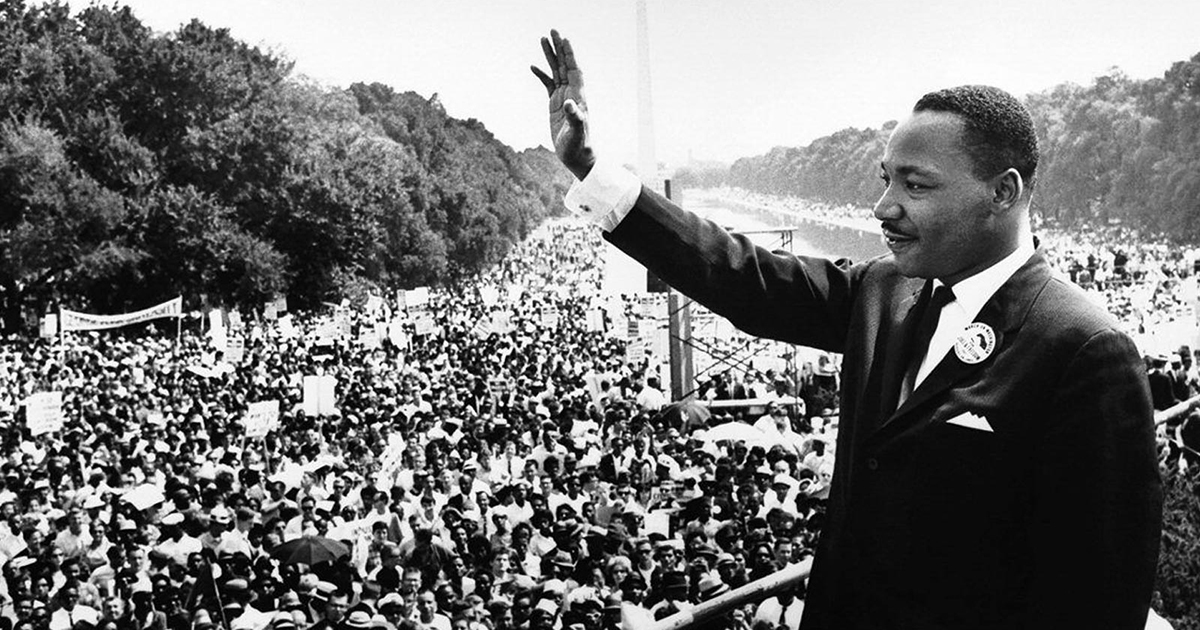
- Details
- By Levi Rickert
Opinion.In the United States, only two individuals are honored with federal holidays named after them: Christopher Columbus and Dr. Martin Luther King, Jr. While Columbus Day remains controversial, particularly among Native Americans, Dr. King’s legacy is widely embraced across Indian Country.
For Native Americans, the celebration of Christopher Columbus as a national figure is profoundly troubling. Columbus, a sailor who landed in the Americas by mistake, symbolizes the beginning of centuries of oppression, colonization, and the near erasure of Indigenous cultures. In response, Native communities have worked tirelessly over recent decades to replace Columbus Day with Indigenous Peoples’ Day, a celebration of resilience and the rich histories of Native peoples.
Dr. Martin Luther King, Jr., however, holds a different place in Native hearts. His dedication to justice and equality resonated deeply within Indian Country, where the fight for sovereignty, water rights, and the preservation of Native cultures continues. Dr. King’s unwavering call for equality for all Americans—regardless of race—spoke to the shared struggles of African Americans and Native Americans alike.
Growing up, Dr. King was a personal hero to me. I recall vividly drawing his portrait in chalk during my freshman year of high school art class—a small act that reflected my admiration for him. Over the years, I’ve returned to his writings often. As a Potawatomi, I find his words inspire hope for marginalized communities, including Native Americans, who have faced systemic inequities throughout American history. His commitment to achieving justice through nonviolence has always resonated with me, aligning with the values I strive to uphold.
In his 1963 book, Why We Can’t Wait, he referenced the origins of racism in the United States when he called the Indigenous people of this land the “original American.” Dr. King writes:
"Our nation was born in genocide when it embraced the doctrine that the original American, the Indian, was an inferior race. Even before there were large numbers of Negroes on our shores, the scar of racial hatred had already disfigured colonial society. From the sixteenth century forward, blood flowed in battles of racial supremacy. We are perhaps the only nation which tried as a matter of national policy to wipe out its indigenous population. Moreover, we elevated that tragic experience into a noble crusade. Indeed, even today we have not permitted ourselves to reject or to feel remorse for this shameful episode. Our literature, our films, our drama, our folklore all exalt it."
Dr. King’s acknowledgment of the atrocities committed against Indigenous peoples was rare among non-Native leaders of his time. He openly recognized the “shameful” chapters of American history that sought to annihilate Native populations. Few others dared to confront these truths as he did, especially in an era when many glorified the actions of their ancestors while ignoring the suffering of ours.
Though Dr. King was assassinated more than 50 years ago, his message remains deeply relevant today. At a time when democracy feels increasingly fragile, his words continue to serve as a guiding light. In his iconic “I Have a Dream” speech, often considered one of the greatest political addresses of the 20th century, he declared, “Now is the time to make real the promises of democracy.” These words still resonate, reminding us of the urgent need to confront inequality and injustice.
Throughout that speech, Dr. King spoke of America’s founding documents—the Constitution and the Declaration of Independence—as a “promissory note” guaranteeing equality and justice for all. He described the persistent inequalities faced by African Americans as a “bad check” returned for insufficient funds. These same inequalities extend to Native communities, where disparities in healthcare, housing, economic opportunities, and voting rights remain glaring.
Today, as we celebrate Dr. Martin Luther King Day, it is important to not only reflect on his achievements but also to recognize how far we still have to go. His vision of equality is a reminder that we cannot merely look to the past; we must also commit to building a future that upholds the principles of justice for all Americans.
Dr. King’s dream is as vital now as it was during his lifetime. It is a call to action for all of us—to make real the promises of democracy and to ensure that future generations inherit a more just and equitable society.
Thayék gde nwéndëmen - We are all related.
More Stories Like This
Tribal Economic Development Programs in the Federal Contracting Environment: What They Are, and What They Are NotWhy Redefining Public Health Degrees Would Harm Native and Rural Communities
The SAVE America Act Threatens Native Voting Rights — We Must Fight Back
The Presidential Election of 1789
Cherokee Nation: Telling the Full Story During Black History Month
Help us defend tribal sovereignty.
At Native News Online, our mission is rooted in telling the stories that strengthen sovereignty and uplift Indigenous voices — not just at year’s end, but every single day.
Because of your generosity last year, we were able to keep our reporters on the ground in tribal communities, at national gatherings and in the halls of Congress — covering the issues that matter most to Indian Country: sovereignty, culture, education, health and economic opportunity.
That support sustained us through a tough year in 2025. Now, as we look to the year ahead, we need your help right now to ensure warrior journalism remains strong — reporting that defends tribal sovereignty, amplifies Native truth, and holds power accountable.
 The stakes couldn't be higher. Your support keeps Native voices heard, Native stories told and Native sovereignty defended.
The stakes couldn't be higher. Your support keeps Native voices heard, Native stories told and Native sovereignty defended.
Stand with Warrior Journalism today.
Levi Rickert (Potawatomi), Editor & Publisher

